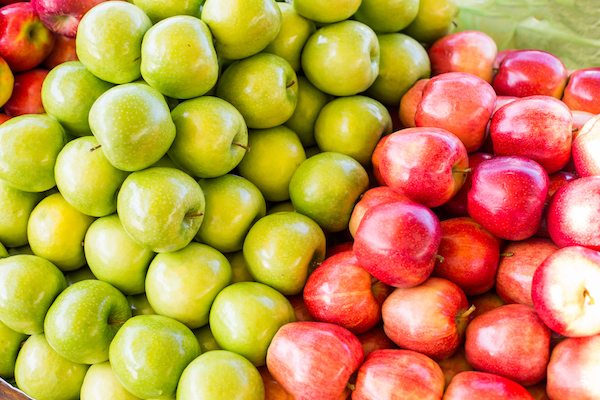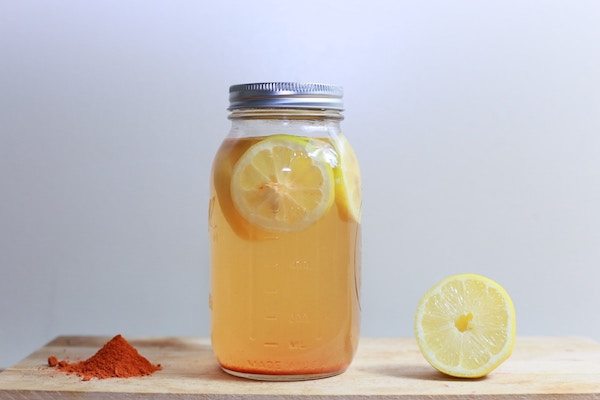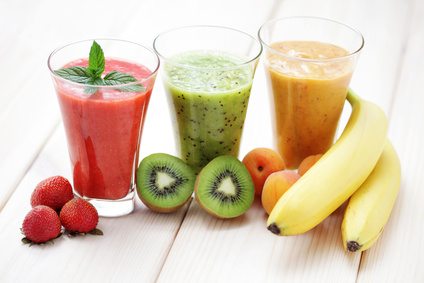In the past few years, you’ve probably noticed that “juicing” has become very popular among athletes, celebrities, friends and colleagues. You can order juices for the week to be delivered to your door, grab a fresh made juice at your farmer’s market, pop into a juice bar in the city or make your own at home. Seeing juice everywhere and hearing the claims that boast the benefits of juicing on television, in magazines, online, and on the radio might make you wonder what all the fuss is about and if these claims are actually true.
As a Registered Dietitian, when I see trends like this, I want to differentiate fact from fiction, and find out if there is an evidence to support such a change in your diet. After a bit of research, the team and I have created a list of pros and cons to help you in your decision.
Pros of Juicing
Convenience
Many people love the convenience of juicing. Fresh juices are simple to make – just throw a bunch of fruits and vegetables into your juicer and easy to transport. It can also be a great way to get fruits or vegetables that you don’t particularly like or know how to cook in your diet.

Efficiency of Groceries
How many times have you had vegetables or fruit left over from a grocery trip just rotting away in your crisper? A great way to use up those ripe and ready vegetables and fruits is to juice them!
Nutrients and Minerals
Another good aspect of juicing is that it contains some nutrients and minerals from the actual whole fruit. Although not enough to help you reach your daily nutrient needs, as it’s missing good stuff (like fibre), it’s still a good way to supplement your regular diet. If you’ve got a crazy busy morning, a cup of juice on the go, coupled with a oatmeal muffin and handful of nuts can have you ready for your day.
Note: There’s several claims that nutrients in liquid form (juices) are more easily absorbed than their whole counterparts (whole fruit), but there is no sound scientific evidence to support this. Nutrients and minerals are equally absorbed in both forms.
Cons of Juicing
Fibre
One of the main differences between juices and eating the whole fruit or vegetable is fibre content. Unlike smoothies, which blend the whole fruit, including the fibrous parts, juicing only extracts the liquid portion.
There are a few benefits to including fibre in our diets:
- Fibre keeps your bowels moving to help prevent constipation
- Fibre helps keep you full and can help maintain a healthy weight
- Fibre can help lower your cholesterol, especially soluble fibre
- And fibre can help to control blood sugar
To learn more about fibre and digestive health, read this article What’s the Fuss About Fibre?
Sugar Overload
Juices can be very high in sugar. There are two consequences to drinking too much sugar. The first is that a lot of sugar can cause a quick spike in your blood sugar which is followed by a crash, leaving you feeling tired and sluggish. The second consequence is that more sugar equals more calories. These calories tend to be mostly empty calories, unless the sugar comes along with a good balance of other nutrients (like eating whole fruits) and even then should be consumed in moderation.
Money Matters
Juicing can be a very expensive practice since the machines cost several hundreds of dollars and you need a whole heck of a lot of produce to make just one cup. Eating the whole foods will get you the nutrients you need with less money.

Juice Cleanses
An extreme form of the juicing trend is a “juice cleanse”, in which nothing but juice is consumed for a specified period of time. The intent of achieving what the name suggests is “cleansing the body of toxins”. I don’t agree with this theory.
Based on the information above, you can see that just having juice for days and weeks at a time can really cause issues in the body. Especially for those with digestive health issues and IBS.
A juice cleanse is very low in fibre and we need fibre to keep the bowels working. To prevent constipation and diarrhea, you should be getting good sources of fibre every day! Most woman need about 25 grams while most men need 38 grams!
You’re also missing out on other really important foods that are going to give you a source of protein like meat, fish, tofu, tempeh, eggs, nuts, and seeds. You need protein to build and repair muscle, tissue, skin, nails and hair. It also helps to build enzymes and hormones.
By consuming only juice, you may not be getting enough calories which may lead to weight loss or actually weight gain. Restricting calories too much may slow your metabolism leading to your body conserving and storing calories as fat.
And the most important reason is that there is no evidence, meaning research studies, that show a juice cleanse is needed or helpful for overall health.
Juice Cleanses and Disease
Relating back to my previous statements on “sugar overload”, a study conducted at the Harvard School of Public Health examined 187,382 participants, looking at their overall fruit consumption and fruit juice consumption. The participants who consumed one or more servings of fruit juice per day increased their risk of developing Type 2 diabetes by up to 21%. However, by replacing three servings of juice per week with whole fruits, participants could reduce their risk by 7%. Unfortunately, diabetes is a disease with a long list of co-morbidities, meaning it increases the risk of health diseases, such as cardiovascular and kidney disease.
It’s interesting to see how an extra cup of juice here and there can really add up to long-term negative health consequences. Now imagine the effect that a 100% juice diet can have on your body.
The Science Behind Juicing
As a health professional and busy entrepreneur, my take home message and final opinion on juices is that there may be a place for it in your diet. If you eat a balanced and healthy diet, having a juice daily may just add a little fluid and vitamin load. Be sure to pack your juice with low sugar vegetables in addition to fruits, so it’s not just a big sugar load! “Juice cleanses” and “juice detoxes” are not something I can support, with the facts above and no evidence to support they are needed in the body.
Much love & good eating,
Stephanie and The Team

